Imagine a world where no senior citizen goes hungry. A world where every elderly person has access to a nourishing meal and the support they need. This is the vision that food banks around the country are striving to make a reality. Recognizing the growing issue of senior hunger, these organizations are stepping up to provide a lifeline for older adults in need. By connecting surplus food with those who need it most, food banks are not only alleviating hunger but also creating a sense of community and hope for our seniors. In this article, we will explore the crucial role food banks play in fighting senior hunger, and the impact they have on the lives of our beloved elderly population.
Overview of Senior Hunger
Prevalence of senior hunger
Senior hunger is a pressing issue affecting a significant portion of the elderly population. According to recent studies, millions of seniors in the United States struggle with food insecurity, not having consistent access to enough nutritious food. It is estimated that 1 in 12 older Americans face the challenge of senior hunger. This alarming prevalence demonstrates the urgent need for action to address this issue and ensure the well-being of our aging population.
Causes of senior hunger
Senior hunger can have various underlying causes. Many seniors live on fixed incomes, relying solely on social security or pensions, which may not be sufficient to meet their nutritional needs. The rising cost of living, including housing, healthcare, and medications, often leaves little room in their budgets for nutritious food. Additionally, limited physical mobility and health issues may make it difficult for seniors to access grocery stores or prepare meals. These factors, along with others such as social isolation and lack of transportation options, contribute to the vulnerability of seniors to food insecurity.
Impact of senior hunger
The consequences of senior hunger are significant and far-reaching. Malnutrition, which can result from inadequate food intake, compromises the overall health and well-being of seniors. It weakens the immune system, increases the risk of chronic diseases, and exacerbates existing health conditions. The physical and mental health implications of senior hunger can lead to hospitalizations, delayed recovery, and higher healthcare costs. Furthermore, food insecurity undermines the quality of life for seniors, potentially causing stress, anxiety, and social isolation. Addressing senior hunger is not just a matter of food provision, but also an essential step in protecting the health and dignity of our aging population.
Role of Food Banks
Definition and purpose of food banks
Food banks are non-profit organizations dedicated to collecting and distributing food to those in need. Their primary purpose is to bridge the gap between the availability of food resources and the needs of individuals and families facing hunger. Food banks operate on a large scale, working with various organizations such as grocery stores, farmers, and community groups to procure surplus food. Through their efforts, food banks play a vital role in ensuring that no one goes hungry in our communities.
Services provided by food banks
Food banks offer a range of services to address senior hunger comprehensively. They collect donations of nutritious food from various sources and carefully sort and store them for distribution. Seniors, who may struggle to access food on their own, can benefit from the services provided by food banks. These services often include regular food distributions, where seniors can select their preferred items from a variety of food options. Additionally, food banks often partner with local agencies and organizations to operate special programs for seniors, such as meal delivery services or senior-specific food pantries. These initiatives ensure that seniors have access to nutritious food that meets their specific dietary needs.
Significance of food banks in fighting senior hunger
Food banks are crucial in the fight against senior hunger due to their extensive reach and specialized services. They serve as the backbone of efforts to alleviate food insecurity among seniors by providing a consistent and accessible source of nutritious food. The collaborative nature of food banks enables them to leverage partnerships with other community organizations, maximizing their impact. By addressing the root causes of senior hunger and meeting the immediate needs of seniors, food banks play a vital role in promoting the health, well-being, and independence of our senior population.
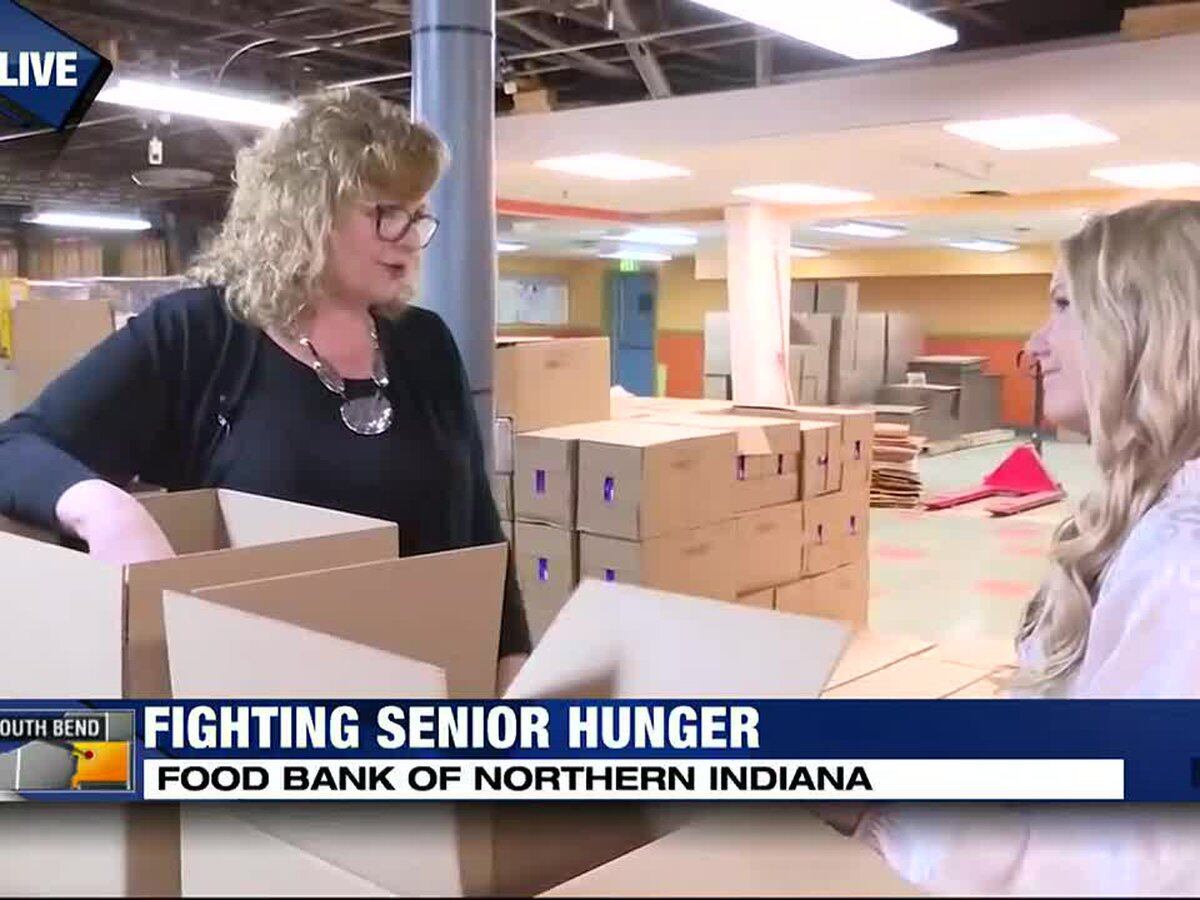
This image is property of gray-wndu-prod.cdn.arcpublishing.com.
Challenges Faced by Food Banks
Limited resources and funding
One of the significant challenges faced by food banks in their mission to combat senior hunger is the limited availability of resources and funding. Despite the increasing demand for their services, food banks often operate on tight budgets and rely heavily on donations. To expand their reach and effectively serve seniors in need, food banks require sufficient financial resources to acquire and store nutritious food. Securing consistent funding is crucial to overcoming this challenge and ensuring the sustainability of food bank operations.
Distribution and transportation logistics
Another challenge faced by food banks is the logistics of distributing food to seniors in need, particularly those who have limited mobility and live in remote areas. Food banks must navigate transportation and distribution challenges to ensure that food reaches seniors in a timely and efficient manner. This may involve coordinating with volunteer drivers, partnering with local transportation services, or exploring innovative delivery options. Overcoming these logistical challenges is crucial to ensure that no seniors are left behind in the fight against hunger.
Meeting nutritional needs of seniors
Food banks must also address the unique nutritional needs of seniors when providing food assistance. As individuals age, their dietary requirements often change, necessitating a focus on nutrient-dense foods that support healthy aging. Meeting these specific needs can be challenging, particularly when relying on donated food that may not always align with senior nutritional guidelines. Food banks must strive to provide a well-balanced assortment of food options that cater to the nutritional needs of seniors, promoting their overall health and well-being.
Collaboration with Community Organizations
Partnerships with local businesses
Food banks recognize the importance of collaboration with local businesses in their efforts to combat senior hunger. By forming partnerships with grocery stores, farmers, and food manufacturers, food banks can access a diverse range of food resources. These collaborations are mutually beneficial, as local businesses can minimize food waste while contributing to the vital cause of fighting senior hunger. In addition to food donations, local businesses can provide financial support, volunteer assistance, and other resources that help enhance the services provided by food banks.
Collaboration with government agencies
Food banks and government agencies often work hand in hand to address senior hunger comprehensively. This collaboration involves sharing resources, coordinating efforts, and advocating for policies that support food security for seniors. Government agencies, such as the Department of Aging or Department of Health, can provide valuable insights and resources to food banks, enabling them to better meet the needs of seniors. By working together, food banks and government agencies can amplify their impact in ensuring that no senior goes hungry.
Engagement with non-profit organizations
Non-profit organizations play a crucial role in the fight against senior hunger, and food banks actively engage with them to maximize their impact. Collaborating with non-profits that focus on senior services, healthcare, or community support allows food banks to reach seniors who may be experiencing food insecurity but are not actively seeking assistance. By combining forces, these organizations can identify and provide comprehensive support to seniors in need, addressing the root causes of hunger and promoting long-term food security.
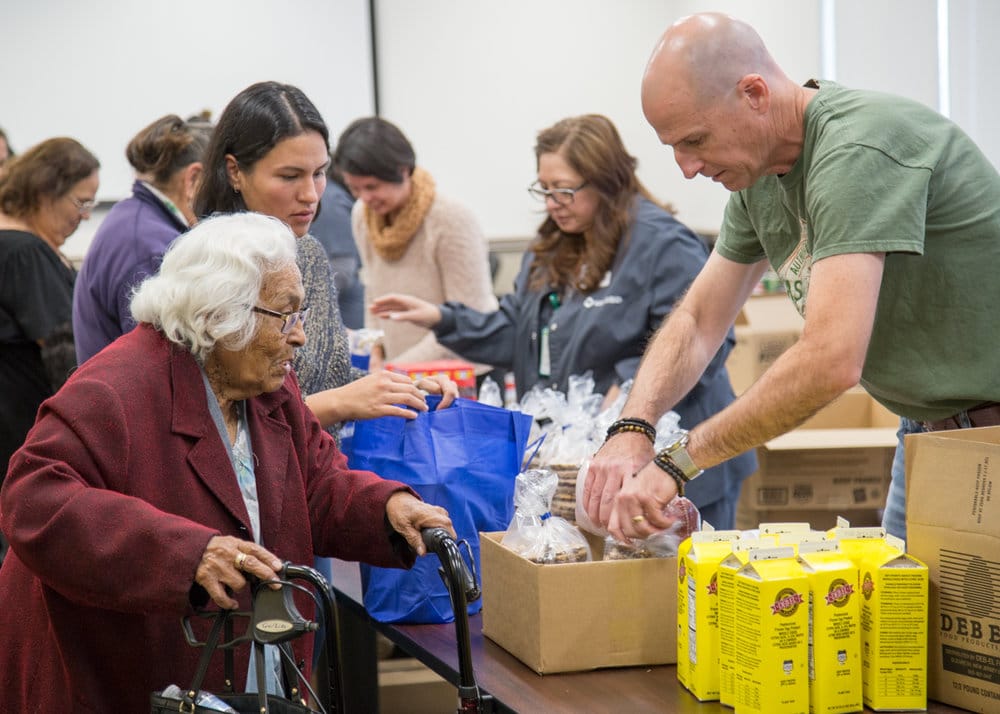
This image is property of foodbanknews.org.
Food Bank Programs for Seniors
Senior-specific food programs
Recognizing the unique needs of seniors, food banks have developed specialized programs to address the challenges faced by this vulnerable population. These senior-specific food programs often involve setting up dedicated food pantries or distribution centers that cater specifically to the nutritional needs of seniors. These programs not only provide access to nutritious food but also create a welcoming environment where seniors can connect with others and access additional resources and support.
Mobile food banks for seniors
In response to the mobility challenges faced by many seniors, food banks have implemented mobile food banks specifically tailored for seniors. These mobile units bring fresh and nutritious food directly to communities where seniors may lack access to traditional food sources. This approach addresses transportation barriers and ensures that seniors in remote or underserved areas receive the support they need. Mobile food banks for seniors provide a lifeline for those who may be unable to travel to traditional food banks, fostering independence and ensuring their nutritional needs are met.
Grocery delivery services
Food banks recognize that some seniors may face difficulties in physically accessing food distribution sites due to limited mobility or health issues. To address this, many food banks offer grocery delivery services specifically designed for seniors. Volunteers or partnering organizations deliver pre-packaged bags of food or even complete grocery orders to seniors’ homes. These services not only ensure the availability of nutritious food but also offer an opportunity for social interaction and regular check-ins, reducing the isolation experienced by some seniors.
Community meal programs
Food banks often operate community meal programs, providing seniors with hot, nutritious meals in a communal setting. These programs are not only a source of nourishment but also foster social connections and combat the social isolation that many seniors experience. Community meal programs can be set up in partnership with local senior centers, community organizations, or even religious institutions. By providing a safe and welcoming space for seniors to come together and share a meal, these programs promote both physical and mental well-being.
Advocacy and Public Awareness
Raising awareness about senior hunger
Public awareness plays a vital role in the fight against senior hunger, and food banks are actively involved in raising awareness about this issue. Through various outreach initiatives, such as social media campaigns, educational materials, and community events, food banks strive to enhance public understanding of the prevalence and consequences of senior hunger. By shining a light on this often overlooked issue, food banks encourage individuals and communities to take action, fostering empathy, and support for seniors facing food insecurity.
Educating the public about food banks
In addition to raising awareness about senior hunger, food banks also aim to educate the public about their role and importance in addressing this issue. They work diligently to dispel misconceptions and highlight the impact that food banks can have on the lives of seniors. By providing information about donation opportunities, volunteer programs, and the services they provide, food banks empower individuals to become actively involved in the fight against senior hunger. Educating the public about food banks strengthens their efforts and ensures a broader understanding of the role they play in fighting senior hunger.
Advocating for policy changes
Food banks recognize that sustainable solutions to senior hunger require systemic change, and they actively advocate for policy changes at the local, state, and national levels. They work in collaboration with other organizations and policy-makers to address the root causes of senior hunger, such as income inequality, affordable housing, and healthcare access. By advocating for policies that support food security and recognize the unique needs of seniors, food banks strive to create an environment where no senior goes hungry. Through their advocacy efforts, food banks are driving meaningful change and facilitating the long-term well-being of seniors in our communities.
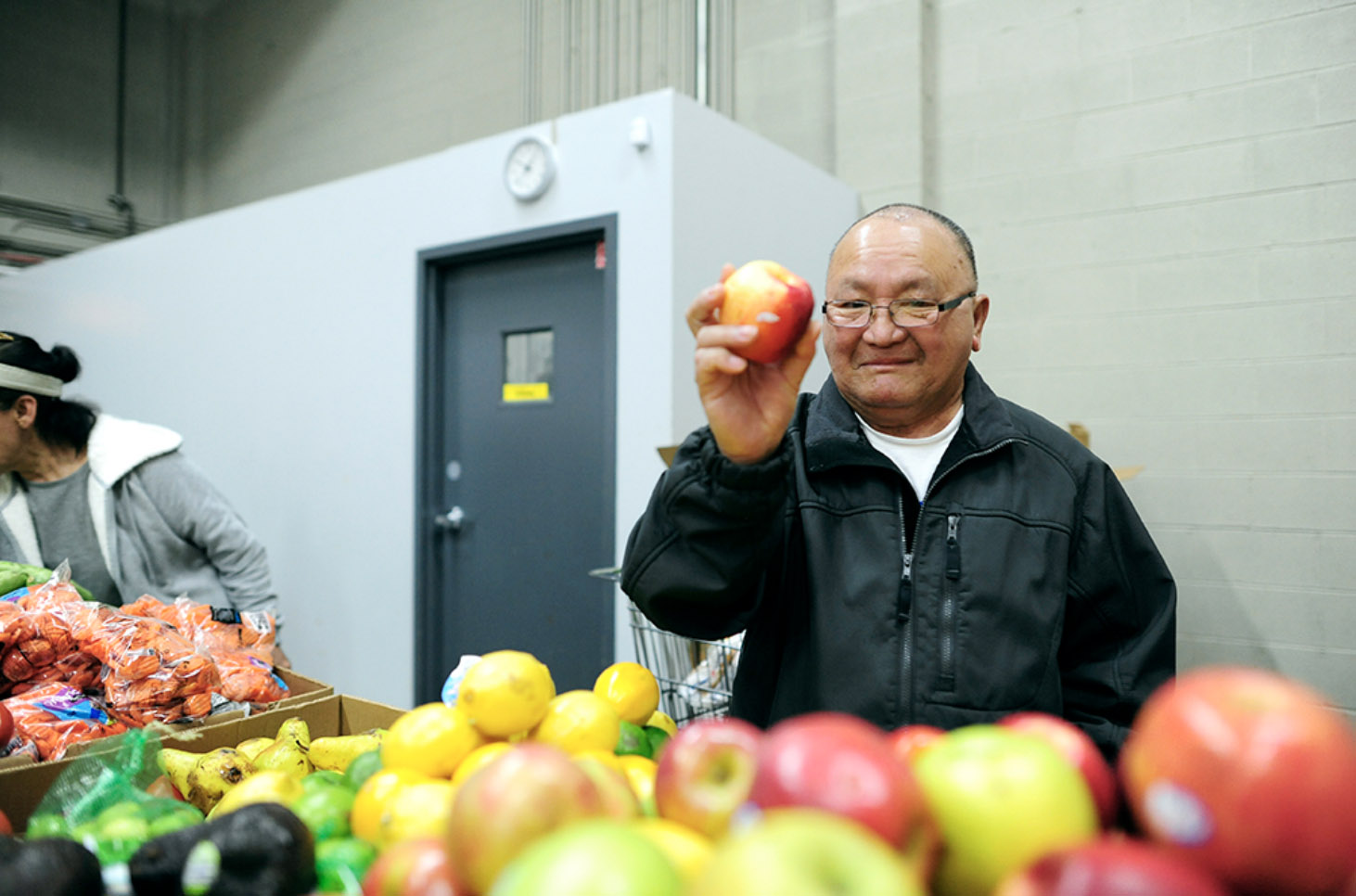
This image is property of www.gleaners.org.
Volunteer Engagement
Recruitment and training of volunteers
Volunteers are the lifeblood of food banks, providing essential support in various aspects of their operations. Food banks actively recruit and train volunteers to assist with food sorting, distribution, administrative tasks, and other crucial activities. These volunteers are often the face of food banks, providing friendly and welcoming assistance to seniors and ensuring the smooth operation of programs and services. By recruiting and training a diverse group of volunteers, food banks create an inclusive and supportive environment where everyone can contribute to the fight against senior hunger.
Involving seniors as volunteers
Food banks recognize the unique experience and skills that seniors bring to the table. Many food banks actively involve seniors as volunteers, tapping into their knowledge, passion, and desire to give back to their communities. Involving seniors as volunteers not only provides them with a sense of purpose and fulfillment but also leverages their expertise and life experiences to better understand and address the needs of seniors facing hunger. This intergenerational approach creates a supportive community where seniors can make a meaningful impact while combating senior hunger.
Benefits of volunteer engagement
Volunteer engagement is mutually beneficial, offering benefits both to the volunteers themselves and to the food banks they support. For volunteers, engaging with a food bank provides opportunities to connect with and contribute to their communities, fostering a sense of purpose and fulfillment. It also allows them to develop new skills and build relationships with like-minded individuals. For food banks, volunteer engagement expands their capacity to serve seniors, enabling them to reach more individuals in need. Volunteers bring diverse perspectives, creativity, and a passion for social change, contributing to the development and improvement of food bank programs.
Innovative Approaches
Technology initiatives to reach seniors
Food banks are harnessing the power of technology to overcome barriers and reach seniors more efficiently. They are developing innovative initiatives, such as online ordering systems, mobile applications, or telehealth programs to connect with seniors in need. These technological solutions enable seniors to access food resources, place orders, or seek assistance conveniently from the comfort of their homes. By embracing technology, food banks can bridge the digital divide, ensuring that even the most vulnerable seniors have access to the resources they need to combat hunger.
Collaboration with healthcare providers
Recognizing the critical link between nutrition and overall health, food banks are forging partnerships with healthcare providers to address senior hunger comprehensively. By collaborating with doctors, nurses, and other healthcare professionals, food banks can identify seniors at risk of food insecurity and provide targeted support. Healthcare providers can refer patients to food banks for assistance while food banks offer resources, education, and nutritious food to improve health outcomes. This collaborative approach strengthens the impact of both healthcare and food bank services, promoting the overall well-being of seniors.
Integration of nutrition and health education
Food banks understand the importance of empowering seniors to make healthy choices and improve their overall well-being. To achieve this, they are integrating nutrition and health education into their programs and services. Through workshops, cooking demonstrations, and educational materials, food banks provide seniors with the knowledge and skills needed to make informed food choices. These initiatives focus on topics such as healthy meal planning, budgeting skills, and age-specific nutritional needs. By combining food assistance with education, food banks empower seniors to take control of their health and make positive changes in their lives.
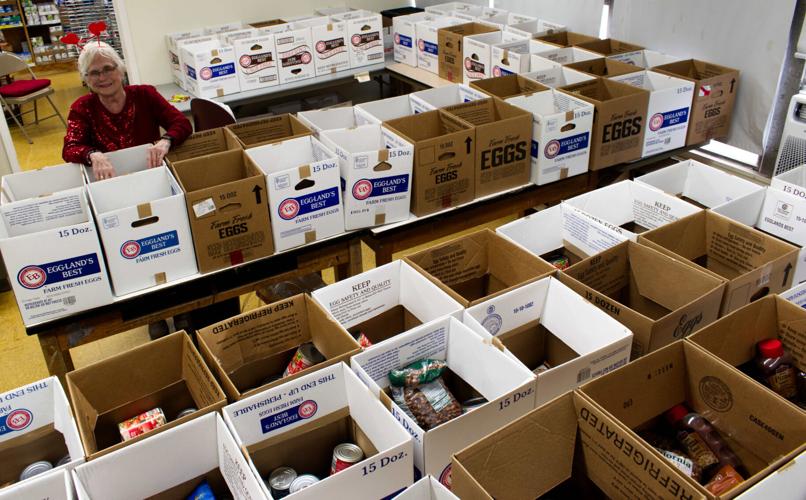
This image is property of bloximages.chicago2.vip.townnews.com.
Success Stories
Impact of food banks on seniors
Food banks have had a significant impact on the lives of seniors facing food insecurity. By providing consistent access to nutritious food, food banks have improved the health and well-being of countless seniors. Seniors who had previously struggled with hunger have reported increased energy levels, improved physical health, and a greater sense of security and dignity. The support provided by food banks has allowed seniors to redirect their limited financial resources towards other essential expenses, such as medication or housing. The impact of food banks reverberates beyond meeting basic needs, positively influencing the lives of seniors and promoting their overall quality of life.
Individual stories of support and transformation
Countless individual stories illustrate the transformative power of food banks. From seniors who regain their strength and vitality after receiving a consistent source of nutritious food to those who find a sense of community and purpose through volunteering at a food bank, these stories highlight the profound impact that food banks have on seniors’ lives. Stories of seniors gaining independence, reconnecting with loved ones, and rediscovering their joy for life serve as powerful reminders of the importance of the work undertaken by food banks in fighting senior hunger.
Future of Fighting Senior Hunger
Expanding food bank services
The fight against senior hunger requires ongoing efforts to expand the services provided by food banks. This involves increasing the availability of senior-specific food programs and mobile food banks, to ensure that seniors have access to nutritious food regardless of their geographic location or mobility. Additionally, food banks must continue to build relationships with local businesses, government agencies, and other community organizations to secure sustainable resources and enhance their impact. By expanding their reach and services, food banks can continue to meet the evolving needs of seniors and work towards a future where every senior has access to nutritious food.
Policy changes and initiatives
To achieve lasting solutions to senior hunger, food banks must advocate for policy changes that address the root causes of food insecurity. This includes collaborating with advocates and policymakers to promote a comprehensive approach that accounts for issues such as affordable housing, healthcare access, and income inequality. Food banks can leverage their expertise, combine forces with other organizations, and engage in grassroots advocacy to drive meaningful change. By advocating for policy changes, food banks can create an environment where senior hunger becomes a thing of the past.
Long-term strategies for sustainability
To ensure the long-term sustainability of their efforts, food banks must prioritize strategic planning and resource management. This involves actively seeking diverse funding sources, forming strategic partnerships, and exploring innovative approaches to food procurement and distribution. Food banks must also invest in research and data analysis to better understand the changing needs of seniors and develop targeted solutions. By adopting a proactive and forward-thinking mindset, food banks can continue to adapt and evolve, paving the way for a future where senior hunger is effectively eradicated.
In conclusion, food banks play a crucial role in fighting senior hunger. Through their comprehensive services, partnerships, and innovative approaches, food banks address the unique challenges faced by seniors in accessing nutritious food. By actively engaging volunteers, advocating for policy changes, and raising public awareness, food banks work to combat senior hunger on multiple fronts. The impact of food banks on seniors’ lives is profound and transformative, allowing them to maintain their health, dignity, and independence. As we look to the future, expanding food bank services, advocating for policy changes, and prioritizing long-term sustainability will be key to ensuring that no senior goes hungry. Together, we can create a future where all seniors have access to the nutritious food they need to thrive.
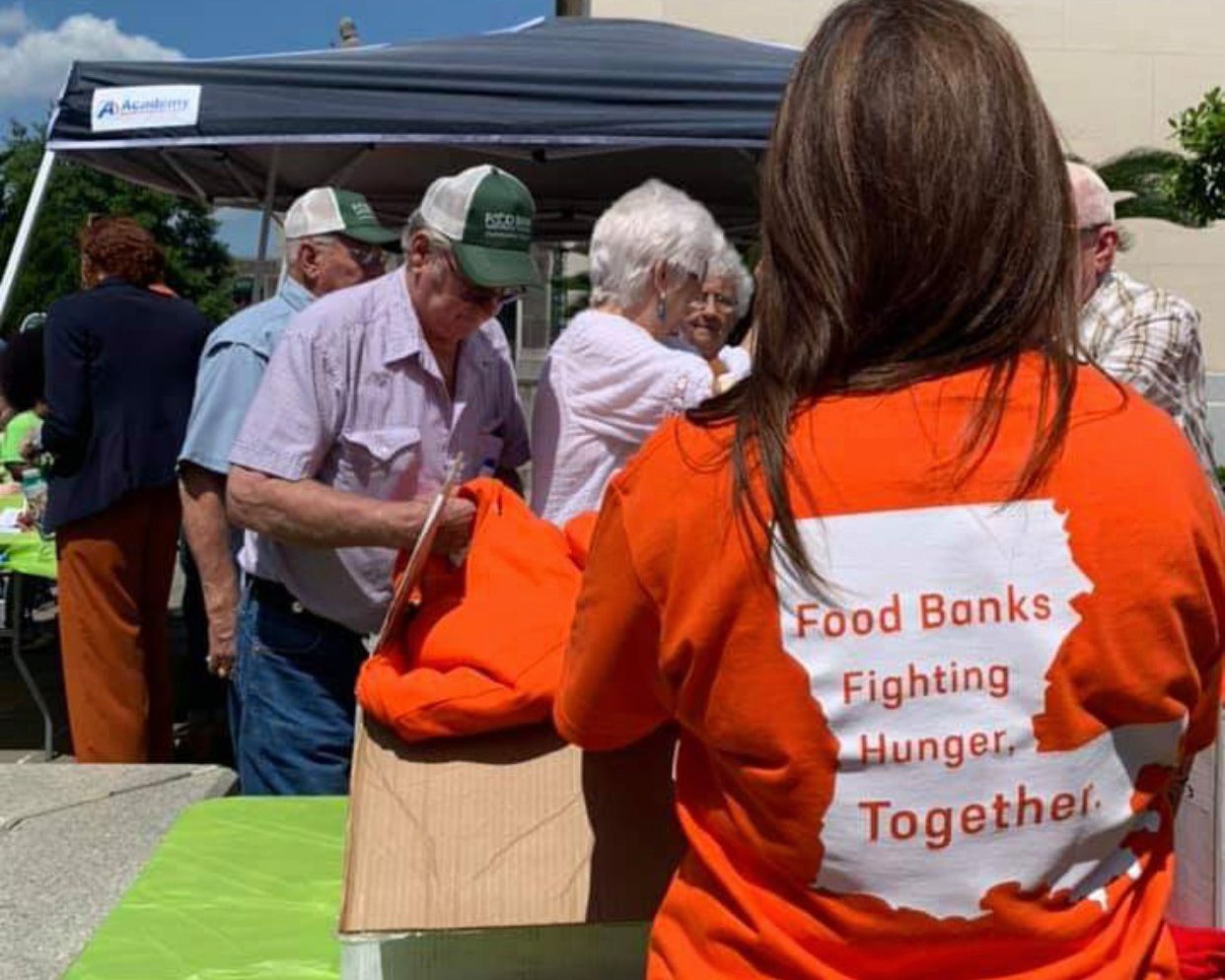
This image is property of images.squarespace-cdn.com.


